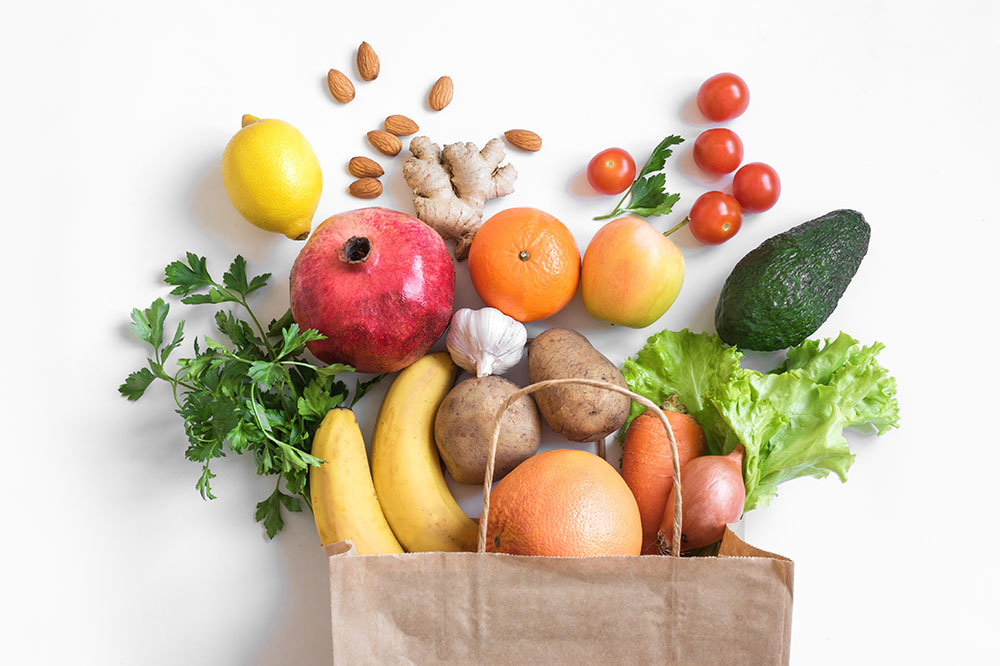Comprehensive Guide to Foods That Reduce Nasal Congestion and Promote Sinus Health
Discover effective dietary strategies to alleviate nasal congestion and support sinus health. This guide details foods that promote anti-inflammatory effects and mucus drainage, along with common triggers to avoid. Incorporate these tips for faster relief and improved respiratory comfort, complemented by home remedies and lifestyle adjustments for optimal recovery.

Effective Dietary Strategies to Relieve and Prevent Nasal Blockages
Nasal congestion is among the most common respiratory issues faced by individuals worldwide. Whether it's caused by allergies, seasonal changes, or infections, clogged noses can significantly impact daily life, leading to discomfort, headaches, sore throats, and breathing difficulties. While home remedies such as humidifiers, saline nasal sprays, steam inhalation, and rest are often used to ease symptoms, diet plays an essential role in promoting sinus health and alleviating congestion. Properly chosen foods can help reduce inflammation, clear mucus, and strengthen the immune system, thereby facilitating faster recovery and more comfortable breathing.
Adopting specific dietary habits can make a significant difference when managing nasal congestion. Below are detailed recommendations for foods that aid in sinus relief, along with foods to avoid that may exacerbate symptoms.
Foods That Help Relieve Sinus Congestion
Incorporating certain foods into your daily diet can provide natural relief from nasal congestion due to their anti-inflammatory, antibacterial, and mucus-dissolving properties. These foods not only help in reducing swelling of the nasal tissues but also bolster the immune system, making it easier for your body to combat underlying infections or allergies.
Garlic: Known for its potent health benefits, garlic contains allicin, a compound with strong antibacterial, antiviral, and anti-inflammatory effects. When garlic is crushed or chopped, allicin is released, helping to combat pathogens that cause nasal infections. Adding garlic to soups, salads, dips, or roasted dishes can help soothe inflamed nasal passages and support overall immunity.
Warm Chicken Soup: A classic home remedy, warm chicken soup is more than just comforting; its steam helps moisturize dry nasal passages, and amino acids such as cysteine help thin mucus, making it easier to expel. Enhancing chicken soup with ginger, garlic, or black pepper can increase its decongestant effects, providing quick relief and easing breathing difficulties.
Horseradish: This spicy root has a long history of use for sinus relief. Rich in antioxidants and sulfur compounds, horseradish triggers a natural decongestant effect by stimulating mucus drainage. However, due to its intense flavor, it should be consumed in moderation to avoid irritation of sensitive nasal tissues.
Ginger: Known for its anti-inflammatory and antibacterial properties, ginger can soothe sore throats, coughs, and nasal congestion. Fresh ginger slices or grated ginger added to tea, soups, or stews can provide warmth, reduce swelling, and promote mucus clearance.
Onions: Their pungent aroma results from sulfur compounds that can naturally help drain the sinuses. Onions also possess antihistamine qualities that decrease allergic reactions and mucus overproduction. Incorporating onions into your cooking can support better nasal airflow.
Mustard: Mustard seeds and mustard condiments contain compounds that can boost immunity and temporarily open nasal passages. Spicy mustard-based dishes or condiments can provide quick relief from congestion when added to meals.
Chili Peppers: Capsaicin, the active component in chili peppers, provides a potent decongestant effect. When tolerated, spicy chili peppers can help clear nasal passages rapidly, especially when incorporated into salsas, hot sauces, or spicy dishes.
Foods to Avoid During Nasal Congestion
Just as some foods can aid in relieving nasal congestion, others may worsen symptoms or trigger allergic reactions, exacerbating sinus problems. Being mindful of certain dietary choices can hasten recovery and reduce discomfort.
Refined Sugars: High sugar foods like candies, pastries, and sodas can impair immune function, encourage bacterial growth, and promote inflammation. Reducing sugar intake during congestion can enhance your body's ability to fight infection.
Dairy Products: Milk, cheese, yogurt, and cream contain casein, which can stimulate excess mucus production in sensitive individuals. Limiting dairy during sinus issues can help prevent the thickening of nasal mucus and facilitate easier breathing.
Gluten-Containing Foods: Wheat, oats, barley, and rye contain gluten, which may cause inflammation in some people, leading to increased mucus production and worsened congestion, especially in those with sensitivities or allergies.
Soy: As a common milk substitute, soy can sometimes aggravate mucus buildup, particularly in individuals with sensitivities. Reducing soy-based products may contribute to less nasal congestion.
Caffeinated Beverages: Coffee, tea, and energy drinks may weaken immune responses and lead to dehydration, which can thicken mucus and prolong congestion. Limiting caffeine during illness may support quicker relief.
In addition to dietary modifications, staying well-hydrated, maintaining good hygiene, and using other home remedies can complement your efforts to reduce nasal blockage naturally. Recognizing the foods that support sinus health and avoiding those that worsen symptoms creates a comprehensive approach to managing nasal congestion and promoting respiratory wellness.





